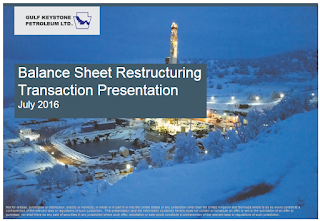The offer of USD300 million, which comprises c.USD120 million in cash and the remainder in shares, represents:
- a 20% premium to the share price of $0.0109 at which, on 14th July 2016, Gulf Keystone issued shares representing 5.6% of its share capital; and
- a 20% premium to the price at which Gulf Keystone intends to issue further shares.
The acquisition of Gulf Keystone would create further scale and operational synergies for DNO in Kurdistan, and the enlarged entity would operate the Tawke and Shaikan oil fields, with current combined net production of c.89mbopd. Gulf Keystone holds a 58% stake in and operates the Shaikan oil field at a current level of ~40,000b/d, which is transported daily by road tanker to DNO's unloading and storage hub at Fish Khabur for onward pipeline transport to export markets.
For the past couple of years, Gulf Keystone's debt has dominated its story and a combination with DNO together with a clean balance sheet is likely to be viewed favourably by the KRG. However, it is noted that the heavy-oil Shaikan project is a high capex and low margin business that would generate a relatively low rate of return for DNO. As with Genel at Miran, DNO will likely need the support of a farminee to push ahead with the full field development.

















